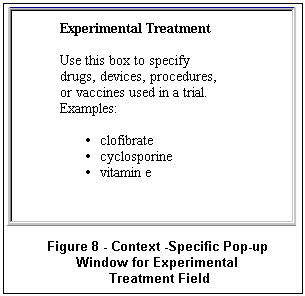

Since the introduction of angiogenesis inhibitors, treatment for recurrent and advanced cervical cancers has improved in the past five years, but median overall survival is 16.8 months for advanced cervical cancer, and all-stage five-year overall survival rate is 68%, indicating that treatment effects remain inadequate. Cervical cancer is a malignant tumor and is the fourth most common cancer among women worldwide. In cervical cancer, however, results are only available from phase II trials, not from phase III trials. Significant treatment responses have already been attained for malignant melanoma and lung cancer, ahead of gynecologic cancer. ©2020 American Association for Cancer Research.Immune checkpoint inhibitors (ICIs) have demonstrated marked clinical effects worldwide, and “cancer immunotherapy” has been recognized as a feasible option for cancer treatment. Pembrolizumab monotherapy showed limited antitumor activity and manageable safety in patients with previously treated advanced well-differentiated NETs. Treatment-related adverse events (AE) occurred in 75.7% of patients, 21.5% of whom had grade 3-5 AEs. Median DOR was not reached, with one of four responses ongoing after ≥21 months follow-up. ORR was 3.7% (95% CI, 1.0-9.3), with zero complete responses and four partial responses (three pancreatic and one rectal) all in patients with PD-L1-negative tumors. Median age was 59.0 years (range, 29-80), 44.9% had ECOG performance status 1, 40.2% had received ≥3 prior therapies for advanced disease, and 15.9% had PD-L1-positive tumors (combined positive score ≥1). Endpoints included objective response rate (ORR) per RECIST v1.1 by independent central radiologic review (primary) and duration of response (DOR), progression-free survival (PFS), overall survival (OS), and safety (secondary).Ī total of 107 patients with NETs of the lung, appendix, small intestine, colon, rectum, or pancreas were treated. Tumor imaging was performed every 9 weeks for the first year and then every 12 weeks. Pembrolizumab 200 mg was administered every 3 weeks for 2 years or until progression, intolerable toxicity, or physician/patient decision. We present results from patients with previously treated advanced well-differentiated neuroendocrine tumors (NET). KEYNOTE-158 ( identifier: NCT02628067) investigated the efficacy and safety of pembrolizumab across multiple cancers. 16 Department of Head and Neck Oncology, Gustave Roussy, Villejuif, France.15 MRL, Merck & Co., Inc., Kenilworth, New Jersey.14 Department of Medical Oncology, Erasmus MC Cancer Institute, Rotterdam, the Netherlands.13 Hematology and Oncology, University of Florida Health Cancer Center-Orlando, Orlando, Florida.12 Division of Hematology and Oncology, Indiana University Health Hospital, Indianapolis, Indiana.11 Investigational Cancer Therapeutics, University of Texas, MD Anderson Cancer Center, Houston, Texas.

10 Department of Medical Oncology, The Cancer Institute Hospital of JFCR, Tokyo, Japan.9 Medical Oncology, City of Hope, Duarte, California.8 Division of Medical Oncology, Department of Internal Medicine, Ohio State University Comprehensive Cancer Center, Columbus, Ohio.7 Department of Medicine, University of California San Francisco, San Francisco, California.6 Oncology Institute and Ella Lemelbaum Institute for Immuno-Oncology, Sheba Medical Center, Ramat-Gan, Israel.5 Department of Oncology, Institut Claudius Regaud, IUCT-Oncopole, Toulouse, France.4 Department of Medical Oncology, MD Anderson Cancer Center Madrid, Madrid, Spain.3 Department of Gastrointestinal Oncology, National Cancer Center Hospital East, Kashiwa, Japan.2 Department of Gastroenterology, Aichi Cancer Center Hospital, Nagoya, Japan. 1 Neuroendocrine Division, Moffitt Cancer Center, Tampa, Florida.


 0 kommentar(er)
0 kommentar(er)
